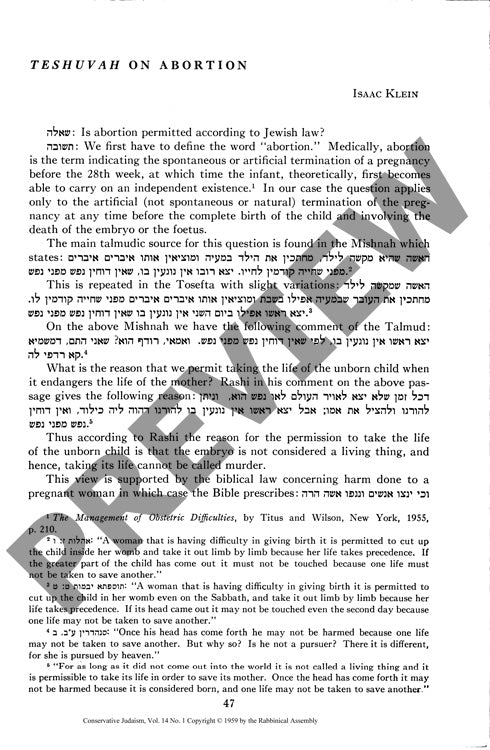Teshuvah on Abortion
Couldn't load pickup availability
This teshuvah examines the permissibility of abortion under Jewish law through systematic analysis of classical rabbinic sources and their interpretations. The study employs traditional halakhic methodology, analyzing primary Talmudic texts from Mishnah Oholot and related sources, examining commentaries by Rashi and Maimonides, and reviewing responsa literature from medieval to contemporary periods. Two primary interpretational frameworks emerge: Rashi's position that the embryo lacks the status of a living being until birth, and Maimonides' application of the "pursuer" (rodef) principle. The analysis reveals that while abortion is generally prohibited as destruction of potential life, therapeutic abortion is permitted when the mother's life is endangered. Historical responsa demonstrate practical applications of these principles across various circumstances, including cases involving maternal health risks and complex medical situations. The study concludes that abortion should only be permitted for therapeutic reasons, rejecting non-medical justifications. This comprehensive examination of classical and contemporary rabbinic sources provides a framework for understanding Jewish law's nuanced approach to abortion, emphasizing the precedence of maternal life while maintaining general prohibition of terminating potential life.

More Information
-
Physical Description
-
Publication Information
Published 1959
ISBN
-
Publication Credits
Isaac Klein

